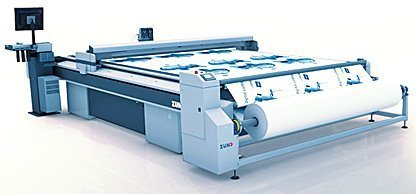Zünd at Fespa 2022 Germany Hall 7 Stand M20

Pearl Polymers responds to PET banPET encounters regulatory claiming in IndiaDespite the slogan of 'Make in Bharat' the Modi government carried on yet another UPA initiative prompted past activism, that may shut down over 200 polyethylene terephthalate (PET) converters, from adjacent month — mostly SME units involved in the packaging of drug formulations for paediatric use. PSA spoke to Udit Seth, director of Pearl Polymers, and owners of the brand Pearl Pet to know the industry reaction to the health ministry society dated 29 September 2014.
In October 2022 the Supreme Court dismissed a public interest petition past a NGO seeking ban on PET in packaging food, drugs and beveragesIn October 2022 the Supreme Court dismissed a public interest petition by a NGO seeking ban on PET in packaging food, drugs and beverages. The apex courtroom upheld the MP high courtroom verdict, and dismissed the PIL which claimed that contempo inquiry showed evidence of PET being harmful for food and pharmaceutical packaging. Additionally the Supreme Courtroom observed that the high court took cognizance of the pollution control Board's response that PET bottles are recyclable and are not harmful to human beings.
NGOs more energetic than industry associations
The NGOs promptly approached the Health Ministry for a ban on PET packaging for medicines, saying leaching can have a carcinogenic touch especially under the high temperature ambient conditions across India. The UPA government set an expert commission to look into the matter. Within a month the Drug Merchandise Advisory Board (DTAB) recommended phasing out of PET for primary packaging for liquid formulations for paediatric and geriatric use, to be implemented in vi months fourth dimension, against this representation to be made effective by 15 March 2014.
In a letter to the Health Ministry, Rituraj Gupta, president of the All India Plastics Manufacturers Association (AIPMA) said, "The use of PET bottles has been statutorily permitted and regulated afterwards thorough evaluation and testing. The Food and Drug Administration (FDA) of USA has certified after diligent research and found no harmful touch for use of PET bottles for storage of food, pharmaceutical and alcoholic products. Therefore, the authorities should withdraw the notification immediately."
A ban based on apprehension
"We have offered a joint testing of PET bottles that will prove that PET is condom," confirmed Seth. However, such tests are long fatigued and often stretch over months and put the onus and the toll on the industry to prove that it is safe. This approach fails to protect the small and medium units which have footling capital and exercise not accept adequate marketing clout to diversify into alternate production applications. It is estimated that the ban guild affects the deployment of a total of 1,00,000 metric tonnes of PET that is used by the pharmaceutical segment annually and shall hit a revenue generation of effectually Rs two,000 crores.
The DTAB study significantly states that "Republic of india has a big variation in temperatures. In summers, the day temperature rises to 40-45 caste centigrade and the exposure of plastic bottles to such a high temperature may outcome in adverse effects on the drug formulations packed plastic bottles and the high temperature may result in increased leachability. The harmful effects because of the packaging and leachability may be further magnified in the case of drug formulations." Whereas the concerns announced genuine, the fact that the decision was imposed in a rush without any detailed study or tests by the DTAB is worrying.
PET could be safer
"There is no agin study on the usage of PET in whatever of the countries," says Seth. "In Bharat, 80% of PET used in bottles is recycled to fibre and other usages and it does not constitute whatever threat to the environment. As a matter of fact PET is more free energy saving then most other plastics and other packaging fabric leaving a lower carbon footprint." Seth says that a contempo report titled 'Detection and Identification of Oestrogen-Agile Substances' in plastic food packaging materials released past the Austrian Research Institute for Chemical science and Technology, testify that no PET samples tested including recycled PET flakes showed oestrogenic activity, suggesting that PET bottles are non the source of the loftier oestrogen.
Seth also confirmed that a like study conducted by the Ministry in Spain in January 2022 comparison PET with glass and polycarbonate PC bottles for drinking water shows that PET bottles with a HDPE cap stand for the majority of the Spanish bottled water market and showed a depression incidence of target compounds in contrast to drinking glass bottles with metallic plastic coated crown cap (presence of DEHP) or PC bottles with LDPE cap (presence of Bisphenol A). Di (2-ethylhexyl) phthalate (DEHP) is a cost-constructive general purpose plasticizer which is used mainly for making PVC soft and pliable, but has been constitute as a gender bender and hence is unfit for use in Europe though it is widely accepted in America. BPA which is a popular carbon-based synthetic chemical compound is known to take ill-furnishings on hormone and has been banned by the FDA for all baby products in the food and pharma manufacture. The use of PET could be actually safer and with a lesser carbon footprint then its alternatives thus negating the purpose of the ban.
Source: https://packagingsouthasia.com/events/zund-at-fespa-2015-germany-hall-7-stand-m20/
0 Response to "Zünd at Fespa 2022 Germany Hall 7 Stand M20"
Post a Comment